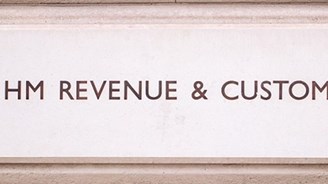Home sweet home

For many, owning and selling their own home is thought to be tax-free but, as always, tax is never quite as simple as that.
Principal Private Residence Relief (PPRR) is a set of tax rules which are designed to ensure that the sale of a person’s home is exempt under certain conditions. The existing rules can be complex but allow PPRR for a number of specific absences from the property, including periods of letting. The Government is making a number of changes to the PPRR.
Change 1 – transfers between married couples
The general rule for CGT is that transfers of assets between married couples and civil partners takes place at no-gain/no-loss. The rules provide that where one spouse makes a transfer of their only or main residence to the other, the receiving spouse’s period of ownership of the dwelling is the same as that of the transferring spouse, even if that period started before marriage. This can have both positive and negative effects depending on the relevant circumstances. However, for non-residences the rules are different.
To make the tax rules consistent, the changes provide that when a spouse or civil partner transfers an interest in a dwelling to their spouse or civil partner (whether or not the dwelling is their only or main residence), the receiving spouse or civil partner will inherit the transferring spouse or civil partner’s ownership history, including their previous use of the property.
Change 2 – the final period of ownership
Generally, the final period of ownership of a person’s home will be tax-free, irrelevant of whether it is actually occupied as such. The final period exemption is reduced from 18 months to 9 months. The rules which give 36 months relief to those with a disability, and those in or moving into care, will not change.
Change 3 – lettings relief
Lettings relief was introduced to ensure that people could let out spare rooms within their property on a casual basis without losing the benefit of PPRR. However, lettings relief extends much further than the original policy intention and also benefits those who let out a whole dwelling that has at some stage been their main residence.
The new rules state that where a gain arises on a person’s home and, at any time in the individual’s period of ownership:
- part of the dwelling-house is the individual’s only or main residence; and
- another part of the dwelling-house is being let out by the individual as residential accommodation
then lettings relief may be due.
Effectively, this means that lettings relief is not available for those periods where an owner has moved out of the property and therefore no longer shares occupation with a tenant or tenants.
Change 4 – need to report
In addition to the changes to PPRR, the Government has also introduced a reporting requirement on the sale of all UK residential properties. This may include residential investment property and also situations in which the sale of a person’s home is not fully covered by PPRR.
In such situations a special return must be completed within 30 days of completion. In addition, if a person is required to make such a return and, as at the filing date for the return, an amount of tax is notionally chargeable on the person, the person is liable to pay that amount on account on the filing date for the return.
Start date
Broadly, all of the above changes apply to transactions undertaken from 6 April 2020 so if you have any questions, please do get in touch.
Keep your clients updated with our latest client newsletter 'Changes to capital gains tax private residence and letting reliefs' to order, call 0330 058 7141 or email sales@mercia-group.com.



